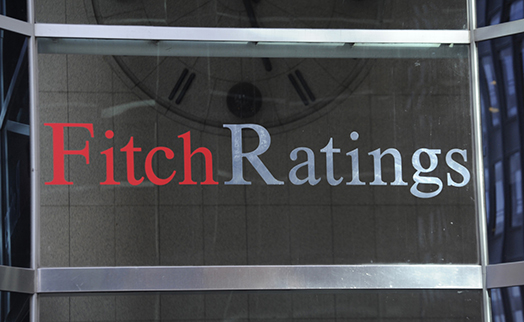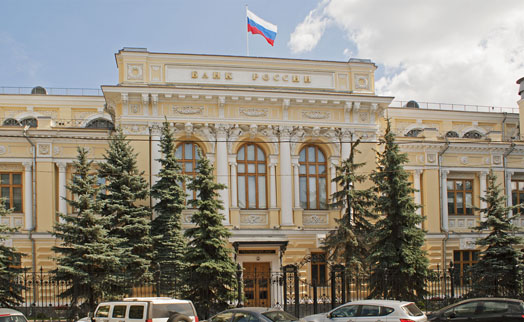21.03.2022 14:44

YEREVAN, March 21, /ARKA/. Fitch Ratings has affirmed Armenia's Long-Term Foreign-Currency Issuer Default Rating (IDR) at 'B+' with a Stable Outlook.
KEY RATING DRIVERS
Armenia's 'B+' IDRs reflect strong per-capita income, governance and business environment indicators relative to peers, as well as a robust macroeconomic and fiscal policy framework and credible commitment to reform, underpinned by IMF support. Set against these strengths are a high share of foreign-currency denominated public debt, relatively weak external finances, and geopolitical risks. Armenia will be adversely affected by spillovers from the crisis in Russia, given important linkages between the two economies, but Fitch presently expects that the sovereign's policy buffers, financing options, and long-dated commercial debt profile can help it navigate the shock without major impairment of repayment capacity.
Close Linkages with Russia: Russia accounted for 28% of goods exports, 37% of imports, and 40% of tourism arrivals, foreign direct investment, and remittances for Armenia as of 2021. The immediate impact of sharply higher natural gas prices will be limited, given that Armenia has locked in gas import prices with Russia as of December 2021, for multiple years. Some disruption to trade relationships is likely given the loss of correspondent banking relationships of Russian banks operating in Armenia. Russia's deep recession and the large depreciation of the Russian rouble will hit Armenian exports.
Sharp Hit to Growth: The headwinds associated with the Ukraine conflict and sanctions on Russia have caused us to revise down our growth projection for 2022 sharply to 1.3% (previously 5.3%), as export growth (particularly to Russia) stalls, and remittances (and hence household consumption) decline. We project growth will return to 4.2% in 2023 ('B' median: 3.6%), reflecting favourable domestic investment prospects and an expected positive contribution of net trade.
Weaker External Finances: Armenia underperforms its 'B' rated peers on external credit metrics. A long record of large current account deficits (CAD) not sufficiently financed by foreign direct investment flows has resulted in high net external debt (NXD) of an estimated 52.5% as of end-2021 ('B' median: 30%). Fitch forecasts a widening of the CAD to 4.1% of GDP in 2022 and 3.8% in 2023, given the projected collapse in demand in Russia, Armenia's largest trade partner, and worsened terms of trade. However, immediate liquidity risks are more limited, helped by the issuance of a USD750 million Eurobond in early 2021 that helped lift FX reserves to cover six months of current external payments as of end-2021, and a flexible exchange-rate regime.
Inflationary Risks: Inflation dipped moderately to 6.5% in February after reaching 7.1% in January. Fitch projects it will average 8.5% in 2022, above the central bank's upper limit of its tolerance band (4% +/- 1.5%), and 5% in 2023. The central bank has raised rates by 225bp since August 2021 and will likely continue with rate hikes in response to the pass-through effect of recent dram depreciation and tightening by major central banks. While the inflation targeting regime is broadly credible, the high level of dollarisation (42% of resident deposits and 43.6% of loans to residents as of January 2022) impedes the transmission mechanism of monetary policy to some extent.
Political Stability: The government, which won re-election in June 2021, is stable and consolidating its gains. Despite occasional flare-ups, relations with Azerbaijan have not worsened, with Russian peacekeepers continuing to maintain a truce in the disputed Nagorno-Karabakh region. Governance indicators remain worse than peer medians, although Armenia substantially outperforms rating peers on human development and ease of doing business indicators.
Fiscal Consolidation Delayed: While Armenia announced a return to compliance with its debt and expenditure rules (suspended for 2020-21) from 2022, the large growth shock associated with the impact of the Ukraine conflict is likely to delay planned fiscal consolidation. Fitch expects the fiscal deficit to stay largely unchanged at 5.1% in 2022 (government target: 3%, based on real GDP growth projection of 7%), and fall to 4.4% in 2023 (projected 'B' median: 3.7%).
High FX Debt: General government debt moderated slightly to 65.7% of GDP in 2021, after its large jump in 2020, on the strong nominal GDP recovery, although the deficit remained relatively high. Fitch expects gradual fiscal consolidation will reduce debt/GDP to 65.2% of GDP in 2022 and 62.4% in 2023 (current 'B' median: 67.6%), more slowly than previously expected given the more adverse economic environment. Armenia is heavily exposed to currency risks, with an estimated 70% of public debt denominated in FX as of end-2021 (current 'B' median: 63.9%). About 82.4% of government debt was at fixed interest rates as of 2021. The average time to maturity of government debt stood at 8.4 years as of end-2021, mitigating risks to some extent.
Banking Sector Risks: Russian presence in the Armenian banking sector poses a moderate risk. A sole Russian bank accounted for 5% of assets as of 1H21, but relies primarily on local funding, and its operations currently do not appear to be affected. Non-residents accounted for over 22% of total banking system deposits (or 11.7% of GDP) as of January 2022, but Fitch believes the risks of large-scale deposit flight is currently limited. The sector has historically suffered from low profitability (the net interest margin was 4% in 2021), but asset quality is solid (non-performing loan ratio of 1.7% as of January 2022), capitalisation is high (the Tier 1 Capital Ratio was 15.6% as of January 2022), and liquidity is strong (31.8% of total assets and 123.6% of short-term liabilities as of November 2021).
ESG - Governance: Armenia has an ESG Relevance Score (RS) of '5' & 5[+]' respectively for both Political Stability and Rights and for the Rule of Law, Institutional and Regulatory Quality and Control of Corruption. These scores reflect the high weight that the World Bank Governance Indicators (WBGI) have in our proprietary Sovereign Rating Model. Armenia has a medium WBGI ranking at 50th percentile reflecting a recent track record of peaceful political transitions, a moderate level of rights for participation in the political process, moderate institutional capacity, established rule of law and a moderate level of corruption.
RATING SENSITIVITIES
Factors that could, individually or collectively, lead to negative rating action/downgrade:
Macro: A severe macroeconomic shock, related to spillovers from Russia or renewed hostilities in Nagorno-Karabakh, that greatly undermines growth and financial stability.
External Finances: A worsening of external imbalances or emergence of external-financing pressures leading to a fall in reserves and a rise in the external interest burden.
Public Finances: Fiscal deterioration that results in financing difficulties and/or a sustained increase in general government debt/GDP over the medium term.
Factors that could, individually or collectively, lead to positive rating action/upgrade:
Public Finances: Improved confidence in general government debt/GDP returning to a firm downward path over the medium term, for example due to a credibly defined fiscal consolidation plan.
External Finances: A sustained improvement in external indicators, for example lower NXD closer to the 'BB' median, supported by improved current account balance and FDI inflows.
Structural: A marked reduction in geopolitical risks, coupled with a convergence of governance standards towards the 'BB' peer median. -0-
Read the news first and discuss them in our Telegram
Tags:





















